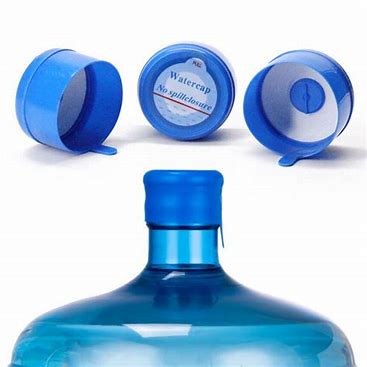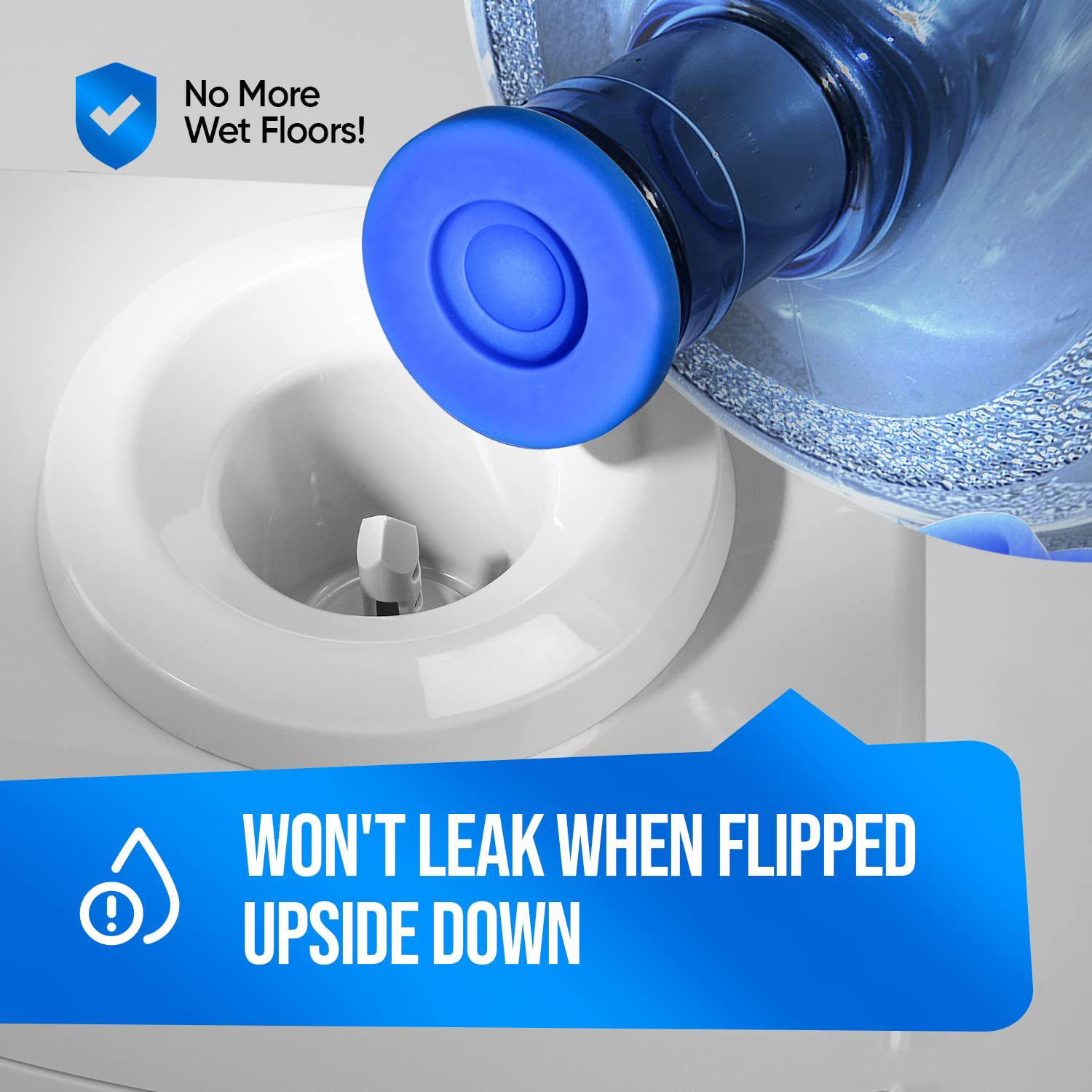When selecting a cap for a five-gallon water jug, the material of the cap is a critical consideration. The choice of material impacts the durability, safety, and functionality of the cap. In this article, we will explore the three main materials used in five-gallon water jug caps: plastic, metal, and silicone, highlighting their benefits and potential drawbacks.
1. Plastic Caps

Advantages:
- Cost-Effective: Plastic caps are typically less expensive to manufacture and purchase, making them a popular choice for many consumers.
- Lightweight: Their low weight makes them easy to handle, especially when frequently replacing caps.
- Versatility: Plastic can be molded into various shapes and designs, allowing for a wide range of cap styles and features.
- BPA-Free Options: Many plastic caps are now available in BPA-free versions, ensuring they are safe for drinking water.
Disadvantages:
- Durability: Plastic caps may not be as durable as metal or silicone options, and can crack or break over time, especially with heavy use.
- Environmental Impact: Plastic is less environmentally friendly compared to silicone and metal, contributing to plastic waste if not properly recycled.
2. Metal Caps
Advantages:
- Durability: Metal caps, often made from stainless steel or aluminum, are highly durable and resistant to damage. They can withstand heavy use and extreme conditions without degrading.
- Recyclable: Metal is fully recyclable, making it an environmentally friendly option. Using metal caps can reduce the environmental footprint.
- Safety: Metal caps do not contain harmful chemicals like BPA, ensuring the safety of drinking water.
Disadvantages:
- Weight: Metal caps are heavier than plastic and silicone, which can make them less convenient to handle.
- Cost: Metal caps are generally more expensive than plastic and silicone options, which may not be ideal for budget-conscious consumers.
- Corrosion: While stainless steel is highly resistant to rust, other metals may corrode over time, especially if exposed to water frequently.

Advantages:
- Flexibility: Silicone is a flexible material, making silicone caps easy to fit onto jugs and ensuring a tight seal to prevent leaks.
- Durability: Silicone is resistant to cracking, breaking, and extreme temperatures, providing a long-lasting option.
- Safety: Silicone is free from BPA and other harmful chemicals, making it a safe choice for water storage.
- Eco-Friendly: Silicone is more environmentally friendly compared to plastic, as it is durable and can be recycled.
Disadvantages:
- Cost: Silicone caps can be more expensive than plastic caps, though they are often more affordable than metal options.
- Availability: Silicone caps may not be as widely available as plastic or metal caps, limiting choices for consumers.
Conclusion
Choosing the right material for a five-gallon water jug cap depends on various factors, including cost, durability, environmental impact, and safety. Plastic caps offer a cost-effective and versatile option but may lack durability and have a higher environmental impact. Metal caps provide excellent durability and are environmentally friendly but come at a higher cost and weight. Silicone caps strike a balance between durability, safety, and eco-friendliness but may be more expensive and less readily available.
Understanding these material choices can help consumers make informed decisions to best suit their needs and preferences. Whether prioritizing cost, durability, or environmental impact, there is a suitable cap material for every requirement.

